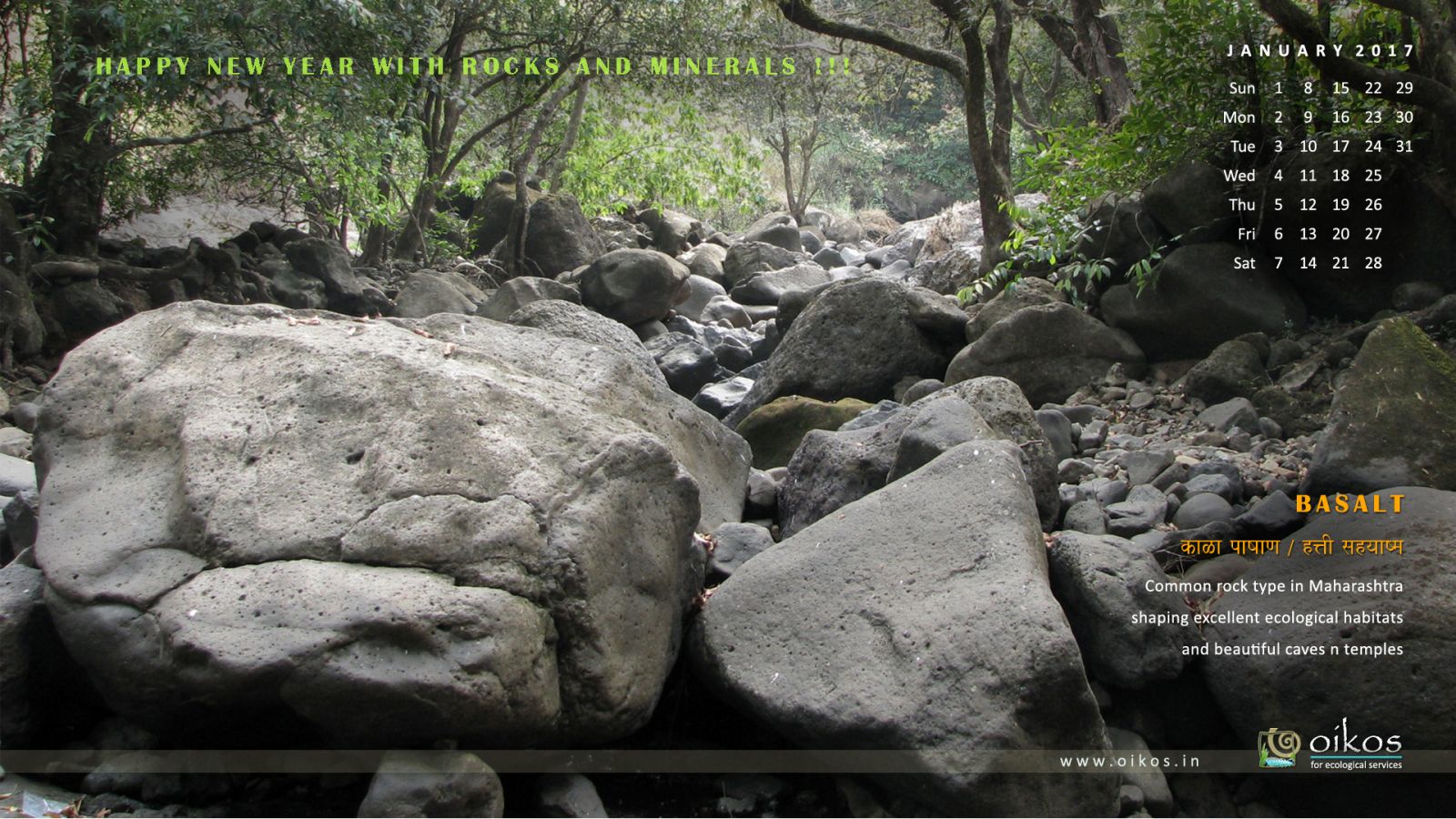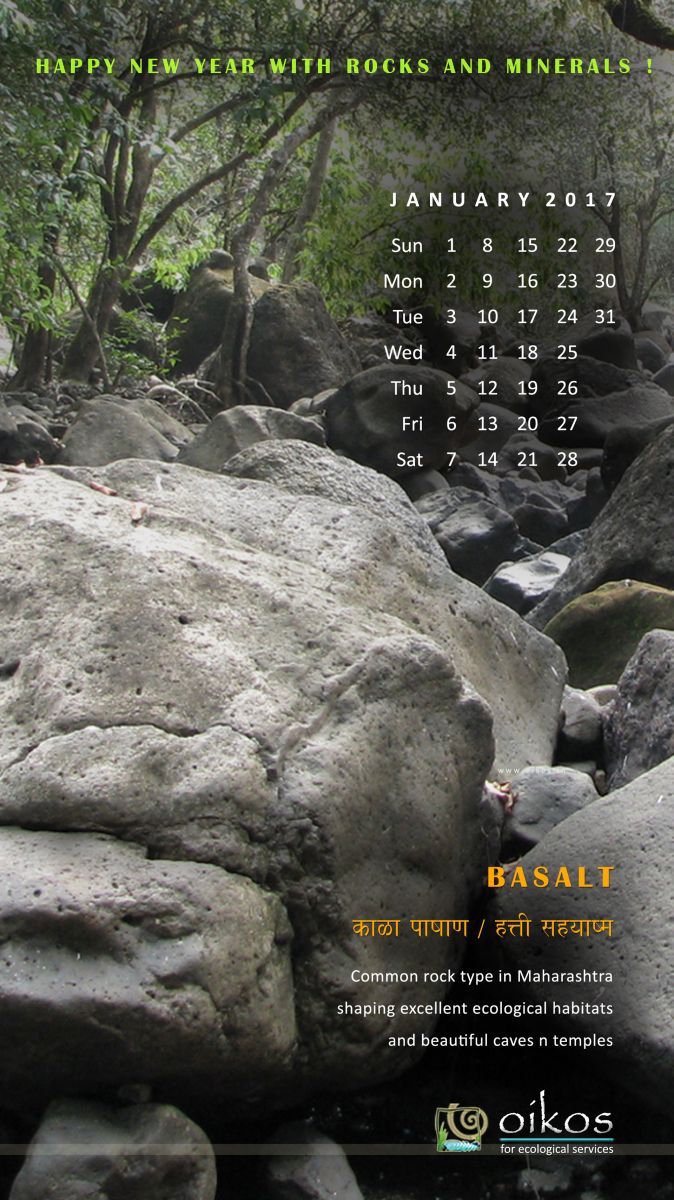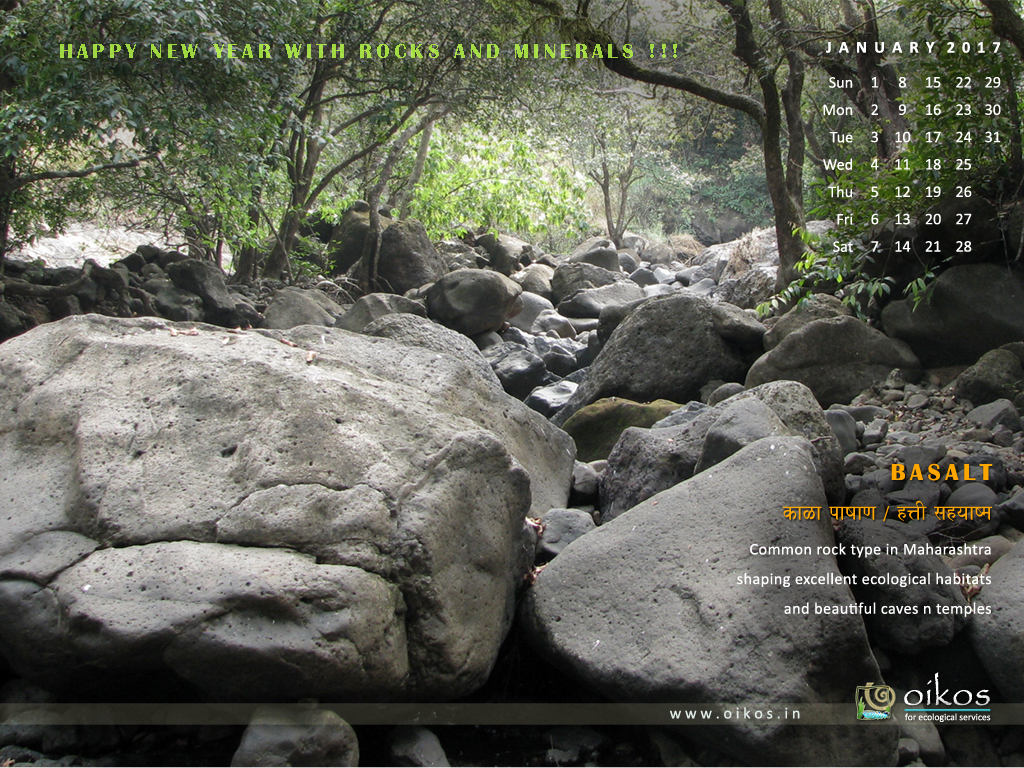Jan - 2017
काळा पाषाण / हत्ती सह्याश्म
The word "basalt" is ultimately derived from Late Latin basaltes,
a misspelling of Latin basanites meaning very hard stone or touchstone or testing stone.
Basalt is Igneous, Volcanic, Basic, Hard and non-porous, Rock !
Igneous (meaning fire) rock is formed through the cooling and solidification of magma or lava,
derived from partial melts of existing rocks in either a planet's mantle or crust.
Basalt is extrusive igneous rock i.e. rock which forms from the lava coming out on the surface
and then gets solidified at or very near the surface.
Also called as volcanic rocks, i.e. igneous rocks being solidified at the surface or shallow depth, from the rapid cooling of lava.
Rock is basic due to low percentage of silica. And that’s why it is black or grey in color.
It can be seen on Steep Mountain slopes, Cliff, Mountain plateau, River-spring beds etc.
Basalt is spread over 80 % of the land in Maharashtra.
Basalt is ecologically important as it stores water, forms many habitats like riparian, caves etc.
which provides safe sites for many animals, reptiles etc.
It weathers with water entering in fractures and cracks,
breaks it into really large pieces, resembling size of an elephant.
So can be called as Hatti Sahyashm in Marathi.
Uses: Construction of buildings, Stone bunds in farming, House construction, Carving, Caves etc.
Regards,
Ketaki & Manasi
Please Note -
This Email is a part of awareness campaign initiated by oikos, Pune. Write to us for your valuable feedback.
oikos have been sending ‘Desktop calendars’ since January ’06 with various themes, which can be downloaded from our website.
If you are not willing or not the correct recipient of this Email, kindly reply this mail with subject 'unsubscribe'.
Thanking you for your precious time.
Click on any of the desired options below to get appropriate image.
Save it to computer and set it as desktop background for your computer monitor.
Oikos for ecological services
Ph. 020-25451875
Web: www.oikos.in




